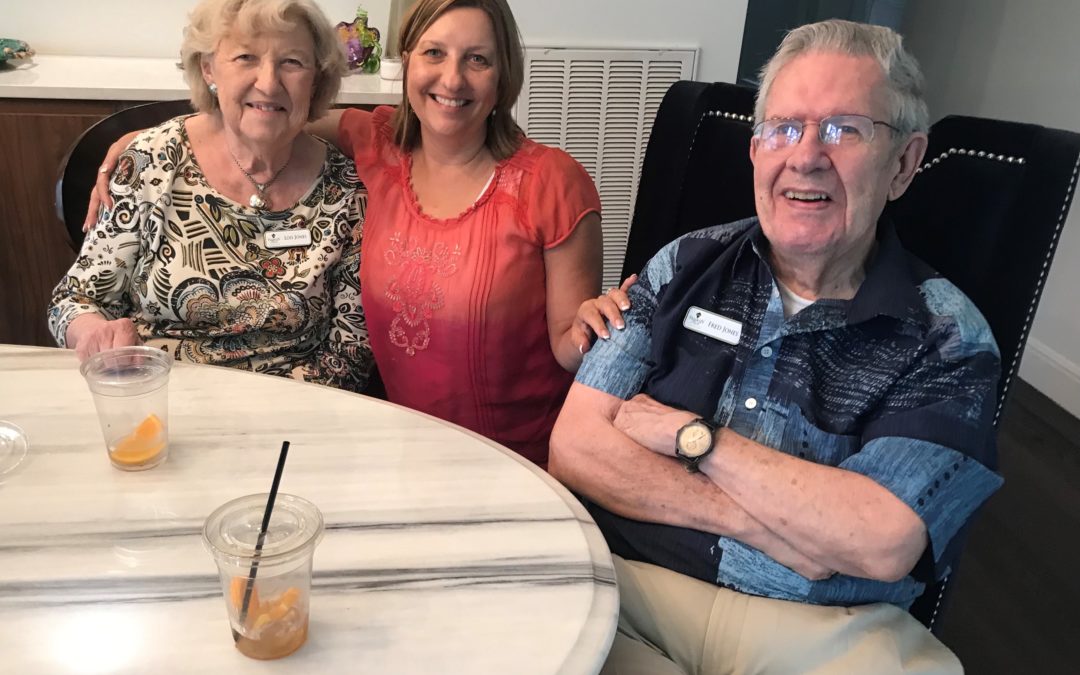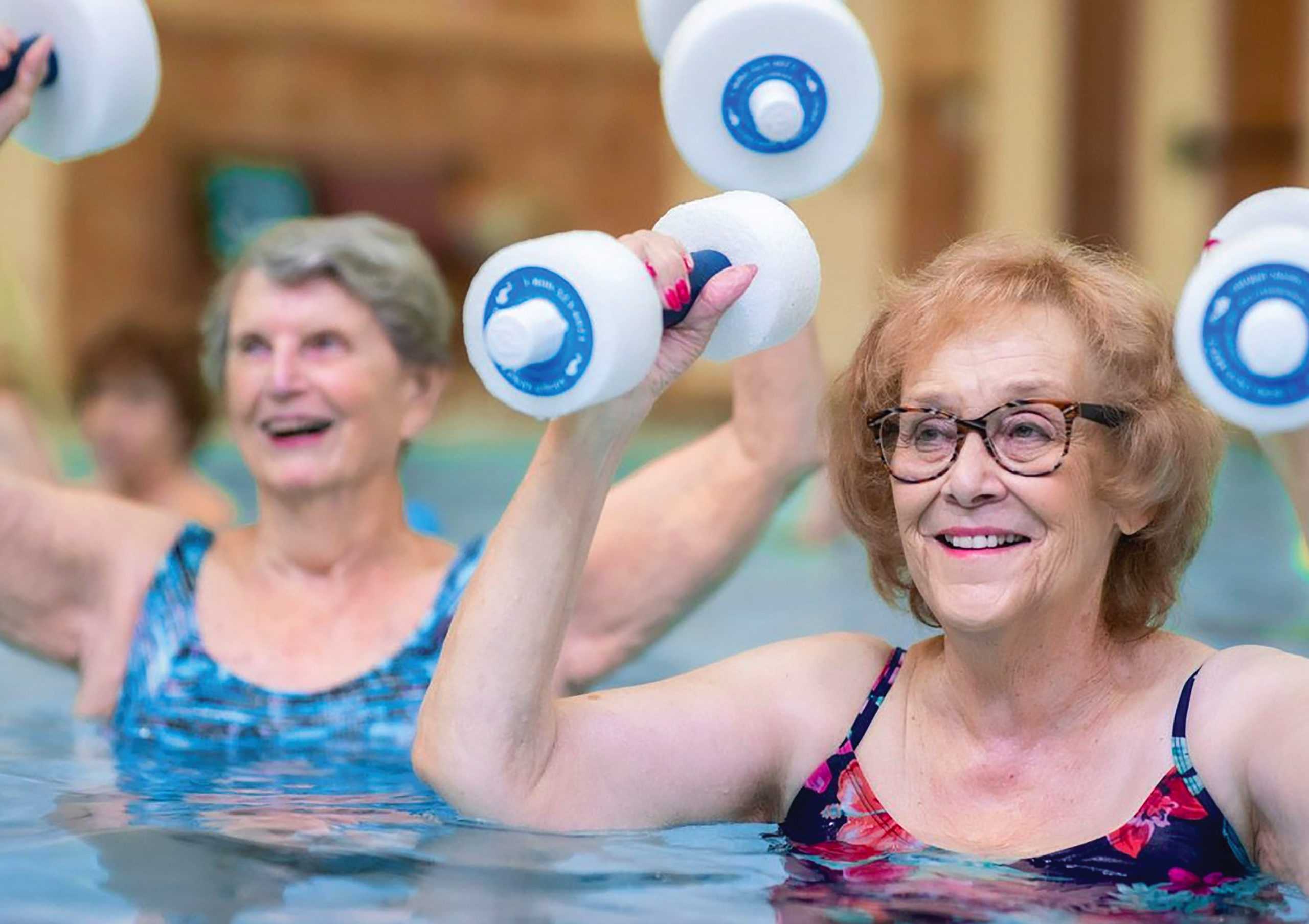Most families are not prepared to bring elderly parents into their homes for their waning years, as we have been fortunate to do with my parents.
Some elderly folk live independently until their death. Some go to live with other family members, and some go to a retirement village, assisted living or a nursing home. There are a few community homes in most cities housing only three to four residents. How do you decide what’s best for your loved one?
Recently, someone sent me an e-mail with a suggestion that since nursing homes cost, on average, $188 a day, we should choose instead to live at the Hilton, where as a permanent elderly resident we can get a reduced rate of approximately $49 a day and use $139 for the rest of our needs. Ridiculous? Actually, according to a 2003 MetLife survey, the average nursing home cost is very close to that — $181 per day (an overall average from the lower-priced “assisted living” to the higher-priced full care). Of course, third-party payers and the need for medical assistance must be taken into account.
When is it time to make the move?
Local resources such as Meals On Wheels and home health care can be used to help people stay independent for a very long time. When your parents become so frail that they are at risk of falling, or so forgetful that they are in danger (leaving the stove on, forgetting to take their medications, wandering off), or when they are unable to take care of their daily needs — keeping their surroundings clean and reasonably neat, doing laundry, changing the beds and so forth — it’s time.
How do you choose?
Once the decision is made that it’s time, you may want to discuss the choice of location with the physician in charge of your parents’ care. She or he may have preferences from experience with such places.
If it’s to the home of one of the adult children, consider who has a living arrangement that will adapt and — even more importantly — who has the temperament to take on such a responsibility. I clearly remember my 3-year-old many years ago telling me menacingly, “when I grow up and you grow down . . .”
If the prospective caregiver is full of resentment and “issues,” the elderly parent will fare better in a facility. If it’s to a facility, investigate carefully. Take your parents with you to look places over if they are able to go. Plan to spend an hour when you go to a location. Check out the activities (are they the kind your family member is interested in?), check the providers’ credentials, talk to some of the residents, eat a meal there if you can. Know as much about each place as possible.
There are Web sites that will help you know what to look for. I found an e-book that could be most helpful. Written by a woman who has worked in various nursing home roles, it is a valuable guide for helping you find the right place for your loved one. Look for Nursing Home Secrets Revealed by Aileen Avenido, R.N., with checklists to remind you what to look for and how to rate different places.
Consider special needs when checking out the facilities. Ask about the range of services: acute care, skilled nursing care, wound care, intravenous and antibiotic therapy, transition to a nursing home if it becomes necessary. Ask about the availability of adjunct services by providers such as physical/occupational/speech therapists, nutritionists and social workers. Is a nurse on call 24/7 to answer questions or provide emergency services? Does the home specialize in caring for those with dementia or Alzheimer’s disease?
Preventing “learned helplessness”
Martin Seligman developed the theory of learned helplessness by working with animals. Dogs were placed in slings that immobilized them and then were subjected to random electric shocks. The result was that when they were removed from the slings and could escape the shocks, they didn’t even try. They lay in the bottom of the cage and moaned. Seligman equated this condition to depression in humans. He called it “learned helplessness.” The dogs weren’t really helpless, but if they thought they were helpless, they were. People who receive random-shock-like events and experience uncontrollability react in a similar way. They feel helpless.
There are some things you can do to help your beloved elderly keep as much personal power as possible. Taking as many of their personal belongings as possible makes the transition easier. Being sure they are involved in the selection of facilities, rooms, and so forth, and that they have choices to make wherever they are, alleviates the helpless feeling.
On occasion, an elderly person who has always been “in charge,” and is feeling relegated to the “home” and helpless, will react by getting oppositional, resisting any suggestions and even becoming quite bossy. She or he is likely fighting that sense of helplessness. The more choices and therefore the more sense of autonomy she or he has, the less likely they are to feel a need to act out in that way.
Division of care-giving duties
Frequently there are sibling rivalry issues carried over from childhood — the old “mother always liked you best” refrain. These affect the care-giving of elderly parents. For example, one of the adult children does the lion’s share of the work without asking for help and harbors resentment. Or one sibling agrees to certain financial obligations without checking with the others and then demands that the others pitch in or expects repayment out of the estate. Resentment builds on both sides.
Sometimes a sibling will refuse to be involved, and sometimes a sibling is too far away. The others are angry and resentful. Communication is the key here. If you are the one doing most of the work and you are feeling resentful, set up an appointment with your siblings and lay it all out for them. Make a list of all the demands and ask how they will participate.
Sometimes the children who live near the parent(s) criticize the distant siblings severely. How dare they live so far away and thereby dump all that work on the ones who live close by? That distant adult child can help by being available for telephone consultations with the other siblings and by talking regularly to the parent. Many telephone services now offer flat rates for long distance. My brother in Italy talks to my mother and stepfather two or three times a week. His calls cheer them up and help them feel connected to him.
One similarly distant offspring that I know of has become the link between her rapidly deteriorating mother and the assisted-living staff. She talks to her mother daily on the phone and knows what’s going on. Her local siblings go to visit once a week as a rule. Her mother quit taking her medicine one time, and no one knew until my friend informed the nursing staff. The more open the communication, the more effective the care and the fewer the resentments.
Rosemary J. Stauber, Ph.D., is a clinical psychologist in San Antonio and founding director of the Bexar County Women’s Center.
Author: Rosemary J. Stauber









0 Comments